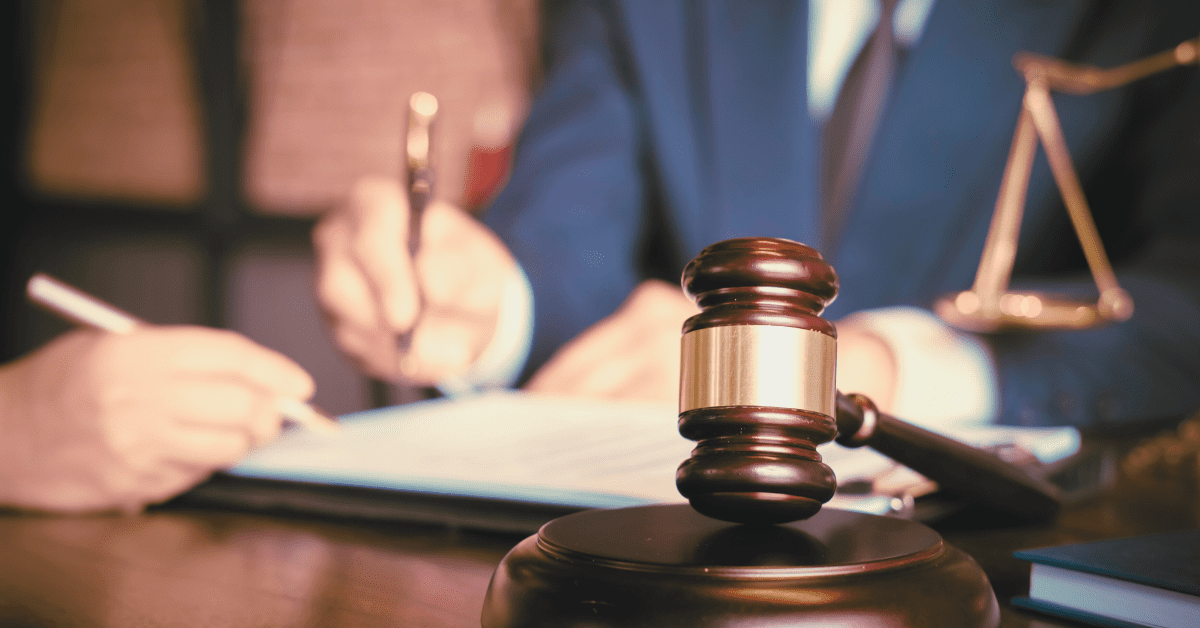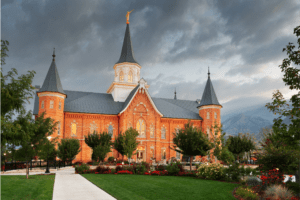Unearthing the Shadows: Clergy Sexual Abuse in the Mormon Church
Dive deep into the ongoing crisis of clergy sexual abuse within the Mormon Church. Drawing from official records and survivor accounts, this article highlights the urgent need for understanding, accountability, and redress.
Introduction
Faith communities across the globe are built on trust. The Church of Jesus Christ of Latter-day Saints (LDS Church), popularly known as the Mormon Church, holds its leadership in high regard. Yet, recent allegations have cast a shadow on the church’s leadership, questioning their morality, transparency, and response to these scandals.
Far from isolated incidents, these revelations speak of a deep-seated crisis challenging faith and trust. This article delves into the severity of this issue, highlighting the importance of justice, understanding, accountability, and reform.
If you or someone you know is affected, specialized resources and professionals are ready to assist you.
Violations and Systemic Challenges: The Intersection of Trust, Culture, and Abuse in the Mormon Church
Recent reports from platforms like, NPR, and AP have spotlighted concerns ranging from financial misconduct to mishandling of sexual abuse cases. The growing public outcry calls for clarity and accountability from the church. While the church’s General Handbook provides protocols for addressing trust breaches, it’s evident that more stringent measures are required, particularly when members suffer abuse or deceit.
Deeply rooted in its traditions, the Mormon Church grapples with modern societal emphases on consent and abuse prevention. Publications such as The Salt Lake Tribune and The Guardian have expressed concerns over specific church teachings, notably those emphasizing chastity for women. Some argue These teachings inadvertently contribute to a ‘rape culture’, a perspective at odds with contemporary views that place blame squarely on perpetrators rather than victims.
Expanding the scope, scholarly works like the Routledge Handbook of Mormonism and Gender and literature on the #MeToo movement within religious settings unveil profound systemic issues. There is alarming evidence suggesting a pattern of violence against African American women within the church. These revelations emphasize the urgent need for the Mormon Church to reevaluate its teachings and the prevailing community culture that might suppress or silence victims.
Unmasking the Clergy’s Role in Sexual Abuse within the Mormon Church
The relationship between the clergy and the laity within the Mormon Church, anchored in trust, respect, and power, has been tainted by allegations and documented cases of abuse. Legal rulings, like the one from the Arizona Supreme Court covered by the Associated Press, allow the church certain exemptions, especially when it comes to revealing information from confessional settings about child sex abuse. Such exemptions have spurred criticism for possibly enabling the church to handle abuse cases internally and evade external accountability.
Adding layers to this narrative are teachings that critics suggest might indirectly perpetuate rape culture, as discussed by the Salt Lake Tribune and The Guardian. A particularly disturbing case from 2023 exemplifies this issue. A jury awarded a Riverside woman a staggering $2.28 billion due to the sexual abuse she suffered for years by her stepfather during church functions. Shockingly, this abuse allegedly occurred with the knowledge of local church leaders and even her own mother. While the church denied any wrongdoing, they settled their part of the lawsuit for $1 million in December of the same year. Additionally, the woman’s mother settled for $200,000. This case underscores the magnitude and potential mishandling of abuse allegations within religious settings.
Overall, the information available paints a complex portrait of the Mormon Church’s challenges. To truly address these concerns, the church needs to embrace both systemic reforms and a broader cultural shift towards accountability and transparency.
Legal Implications and the Role of the Justice System
The legal maze survivors face when confronting abuse within the Mormon Church is multifaceted and often daunting. For many, the trauma of abuse is exacerbated by the intricacies of seeking justice within a system where the religious institution in question wields considerable influence and power. The need for robust legal advocacy is palpable, and the justice system’s role becomes pivotal in ensuring survivors receive the justice they deserve.
The Associated Press has been particularly vocal about highlighting the purported lapses in the church’s handling of abuse cases. Their investigative piece delves into instances where the church has allegedly mishandled such cases, sometimes reportedly allowing perpetrators to continue interactions with vulnerable groups, even after accusations were made. This situation paints a grim picture, pointing to the possibility of institutional negligence or, worse, complicity.
Survivors seeking guidance should also explore options beyond legal avenues. There are numerous helplines, counseling services, and community support groups to provide assistance.
A deeper historical dive, as presented in a YouTube video titled: “How the Mormon Church Handles Sex Abuse – A History – 1637”, indicates that this isn’t a new phenomenon. The video chronicles the church’s purported mishandling of abuse cases over the years, further underscoring the deep-seated nature of the problem and the urgent need for reform.
On the legal front, entities are stepping up to the challenge of holding such powerful institutions accountable. Our team with a track record of supporting survivors, advocating for their rights, and pressuring institutions towards meaningful change, they offer a lifeline to those seeking legal redress.
Pursuing Reform: Creating Safer and More Accountable Worship Places
Religious institutions, like any other organization, must evolve and reform to meet the needs of their communities, especially in light of recent abuse cases within the Mormon Church. The events underscore the pressing need to examine systemic issues and cultural challenges inherent in the community, aiming to create a more protective environment. Some suggested steps include:
1. Modernization of teachings and traditions: Re-evaluating outdated teachings and traditions is essential. Any doctrines that indirectly blame victims, especially women, must be overhauled. The church’s doctrine should promote inclusivity and equity for all members, irrespective of gender.
2. Greater transparency and accountability: An institution’s integrity is gauged by its transparency. The church should provide more visibility into its procedures for handling abuse cases. To foster trust, cooperation with law enforcement agencies is vital, ensuring justice is delivered, and offenders are held accountable.
3. Legal support and advocacy: Survivors of abuse require both emotional and legal assistance. Law firms like Nigh, Goldenberg, Raso & Vaughn play a critical role in this landscape, offering survivors legal support and amplifying their voices, all while pressuring institutions towards transformative change.
4. Community involvement: The call for change will be more resonant when echoed by a united community. Believers, families, and community members can be catalysts of this change, demanding transparency and accountability from the church. Their proactive stance against abuse can engender a safer worship environment.
FAQ on Clergy Sexual Abuse in the Mormon Church
—
Q1: What is the overview of the church sex abuse scandal?
A: The Mormon Church has faced numerous abuse allegations over the years. Claims suggest mismanagement and a failure to report to the appropriate authorities. Several investigations have uncovered a pattern of purported negligence and mishandling.
—
Q2: Are there any prominent legal cases or convictions related to abuse within the Mormon church?
A: Yes, Warren Jeffs, the president of the FLDS, was sentenced in 2011 to life plus 20 years for child sexual assault. Despite his conviction, debates about his mental fitness for a deposition continue.
—
Q3: Can you provide an example of clergy abuse within the Mormon Church?
A: There are several documented instances of abuse over the years. One notable resource is the AP’s article titled “Seven years of sex abuse: How Mormon officials let it happen”, which offers an in-depth dive into some of these allegations.
—
Q4: Are victims seeking redress for abuse suffered in religious settings?
A: Yes, legal changes in many states have enabled victims to file civil claims of sexual abuse, even if the abuse occurred years ago. This has led to thousands of claims against religious organizations, including the Mormon church and others, with accusations of cover-ups and mismanagement.
—
Q5: What are the long-term effects of sexual abuse by religious leaders on survivors?
A: Survivors of clergy abuse often face a myriad of challenges. These include emotional, psychological, and sometimes physical consequences. The trauma can result in various manifestations like PTSD, depression, trust issues, and difficulties in forming or maintaining personal relationships.
—
Q6: What resources and support are available for survivors of clergy abuse?
A: Survivors can seek legal advocacy and support from firms such as Nigh, Goldenberg, Raso & Vaughn. Additionally, community outreach and therapy groups can offer emotional support and healing. National organizations like SNAP (Survivors Network of those Abused by Priests) also provide comprehensive resources and assistance for survivors.
For immediate assistance, consider reaching out to:
– **SNAP:** Visit SNAP’s website for resources, support, and advocacy information.
—
Remember, if you or someone you know needs help, seeking support from trusted professionals or organizations is crucial. You’re not alone, and there are resources available to assist you.
Conclusion
The revelations surrounding the abuse cases within the Mormon Church serve as a stark reminder that no institution, regardless of its religious or cultural significance, is immune to systemic issues that can harm its members. Addressing these issues requires a multifaceted approach that calls for structural reforms within the Church and mandates greater societal awareness and intervention.
To truly move forward, institutions like the Mormon Church need to adopt transparent and modern practices prioritizing their members’ safety and well-being. This involves both internal reflection and actionable steps towards creating a safe and inclusive environment. But change isn’t solely the responsibility of the institution. Society at large, including believers, families, and advocacy groups, plays a crucial role in demanding accountability, pushing for reform, and supporting survivors.
As the conversation around this topic progresses, it’s essential to approach it with sensitivity, understanding, and a commitment to justice. The aim isn’t just to highlight the misgivings of the past, but to pave the way for a future where every individual feels safe, respected, and valued within their religious and community spaces. It’s a challenging road ahead, but with concerted efforts and a shared vision, a safer and more accountable future is achievable.
If you are a survivor of sexual abuse in the Mormon Church, do not suffer in silence. Contact our dedicated team of sexual abuse lawyers at Nigh, Goldenberg, Raso & Vaughn. Dial 202-925-4500 now, or fill out our online form for a free consultation if you have experienced clergy sexual abuse. Your journey toward healing and justice starts here.









